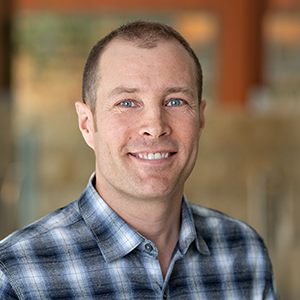The research community at the Institute includes visiting scholars, consultants, economists, research analysts, and research assistants. These scholars bring a diversity of backgrounds, interests, and expertise to research that deepens our understanding of economic opportunity and inclusion as well as policies that work to improve both.
Institute visiting scholar Modibo Sidibé has touched many topics in his career: labor mobility, school choice, police use of force. This spring, he set those projects on pause to return to his native Mali and focus on voting.
“Mali is a large country and there are many places with low population density,” Sidibé said, speaking from the capital, Bamako. “Organizing voting operations in those places is really difficult.” The landlocked West African country is also plagued by coups and corruption. “People want roads, hospitals, and schools,” Sidibé said. “I do not understand how governments—tasked to provide basic infrastructure—end up creating an ecosystem of civil servants only enriching themselves, at every level.”
Sidibé’s voting experiment is a modest effort to turn the tide. Despite the widespread corruption, he secured government cooperation for a test in September’s municipal elections: In one central region, Sidibé will lead an effort to allow residents to vote without leaving home. “We want to be able to reduce the cost of voting to a one-minute phone call,” he said. This makes voting easier and sidesteps the bribes aimed at voters outside polling stations. The vote-by-phone option will be available in half of the region’s towns, allowing Sidibé to compare the results with a control group.
While he writes op-eds on Malian politics, researching development economics in Mali has been “a really painful topic” that Sidibé has largely avoided in favor of policy questions in his adopted homes. Does French public housing help people save for homeownership? (It does.) Are relocation subsidies an effective policy to help people move to fill available jobs? (It appears not.) Can free college tuition help reduce U.S. income inequality? (It may actually make it worse.)
Another recent project, presented during his Institute visit, uses granular data on police schedules in Chicago, where seniority determines which cops walk which beats. Senior officers naturally self-sort into safer neighborhoods. From a policy-planner perspective, however, this is precisely where they should not be: Experienced officers in Chicago use less deadly force and appear to prevent more violent crime.
Sidibé and his co-authors propose an alternative, budget-neutral mechanism using financial incentives, not seniority, to shape who works where. In their model, this cuts violent crime by 5 percent while reducing use of force and arrests for nonviolent offenses. Officers, on the whole, are also better off.
Could this plan get off the ground in the face of potential concerns from police unions? “Once you explain that the mechanism is based on choice, I think you can make headway,” Sidibé said. As in Mali, a big change could start with one small experiment.
This article is featured in the Spring 2023 issue of For All, the magazine of the Opportunity & Inclusive Growth Institute
More scholar spotlights from this issue
Jeff Horwich is the senior economics writer for the Minneapolis Fed. He has been an economic journalist with public radio, commissioned examiner for the Consumer Financial Protection Bureau, and director of policy and communications for the Minneapolis Public Housing Authority. He received his master’s degree in applied economics from the University of Minnesota.






